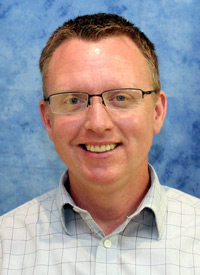Fifteen years ago, the approach to treating concussion was almost laissez-faire: a few days of absolute bed rest, then back to the normal level of activity. Today, the alarming increase in concussion – 4 to 5 million concussions occur annually, according to the U.S. Centers for Disease Control and Prevention – has led to heightened public awareness, new knowledge about mild traumatic brain injury and a search for alternative methods to treat it.
“Our knowledge of concussion and post-concussion syndrome has increased exponentially in the last 10 years,” says brain injury specialist Manuel Mas, MD, an attending physician at TIRR Memorial Hermann and medical director of the TIRR Memorial Hermann Concussion Program. “We know now that the effects of concussion may continue for weeks, months or a year or longer after injury, especially if patients do not get appropriate care.”
Physical symptoms of post-concussion syndrome may include headache, dizziness or vertigo, nausea, blurred vision, tinnitus and problems tolerating light and noise. Cognitive symptoms may include problems with concentration and attention, difficulty remembering or learning new things, slowed reaction times, and problems with reasoning and processing information. Emotional and behavioral symptoms may be mild to severe and include depression, sleep disturbances, personality changes, irritability and anxiety, a lack of energy, a general lack of interest in things, and sudden episodes of emotion, including laughing or crying.
TIRR Memorial Hermann has long treated patients post concussion for vestibular issues using vestibular rehabilitation, a form of therapy designed to help patients with complaints of falls, dizziness, vertigo, disequilibrium, motion sensitivity and balance disorders.
Neuropsychology evaluation and therapy has also been a mainstay of treatment for patients with concussion, delivered by a team of licensed psychologists, including specialists in clinical psychology, clinical neuropsychology and rehabilitation psychology. They provide cognitive screening and monitoring, monitoring of mood and behavior, comprehensive neuropsychology assessments and psychological assessments.

The Concussion Program currently is offered at TIRR Memorial Hermann Outpatient Rehabilitation at the Kirby Glen Center, TIRR Memorial Hermann Outpatient Rehabilitation-Memorial City, TIRR Memorial Hermann Outpatient Rehabilitation at Sugar Land, and TIRR Memorial Hermann Outpatient Rehabilitation- The Woodlands. Each location has a multidisciplinary team of physical therapists, speech-language pathologists and neuropsychologists focused on concussion.
“A number of facilities treat concussion as part of an overall sports medicine program, addressing the physical aspects of the injury,” Dr. Gibbs says. “We address the broad spectrum of mild traumatic brain injury from multiple causes, such as falls or motor vehicle accidents, using a multidisciplinary approach that includes treatment for cognitive and emotional issues.”
As the program’s volumes grow, the team plans to conduct research on the effects of closely supervised progressive cardiovascular exercise on outcomes in post-concussion syndrome. “The most common treatment for post-concussion syndrome has been rest and medication. However, there’s a new awareness that structured, individualized, progressive aerobic exercise may reduce symptoms of post-concussion syndrome,” says Laura Martin, PT, DPT, NCS, neurologic physical therapy residency program director at TIRR Memorial Hermann. “We hope to add to the growing body of evidence.”
Patients may be referred to the program at any time post concussion – acutely in the first weeks and also in cases where symptoms persist over time. “Concussion is a very treatable condition,” Dr. Mas says. “As with any medical condition, early intervention reduces symptoms and accelerates the course of recovery, but patients at any stage of recovery benefit from a structured, multidisciplinary plan of care.”
Physicians who wish to refer their patients to the Concussion Program at TIRR Memorial Hermann may call (800) 44-REHAB (73422). Dr. Mas is available to see patients who are not currently under the care of a physician for their concussion.